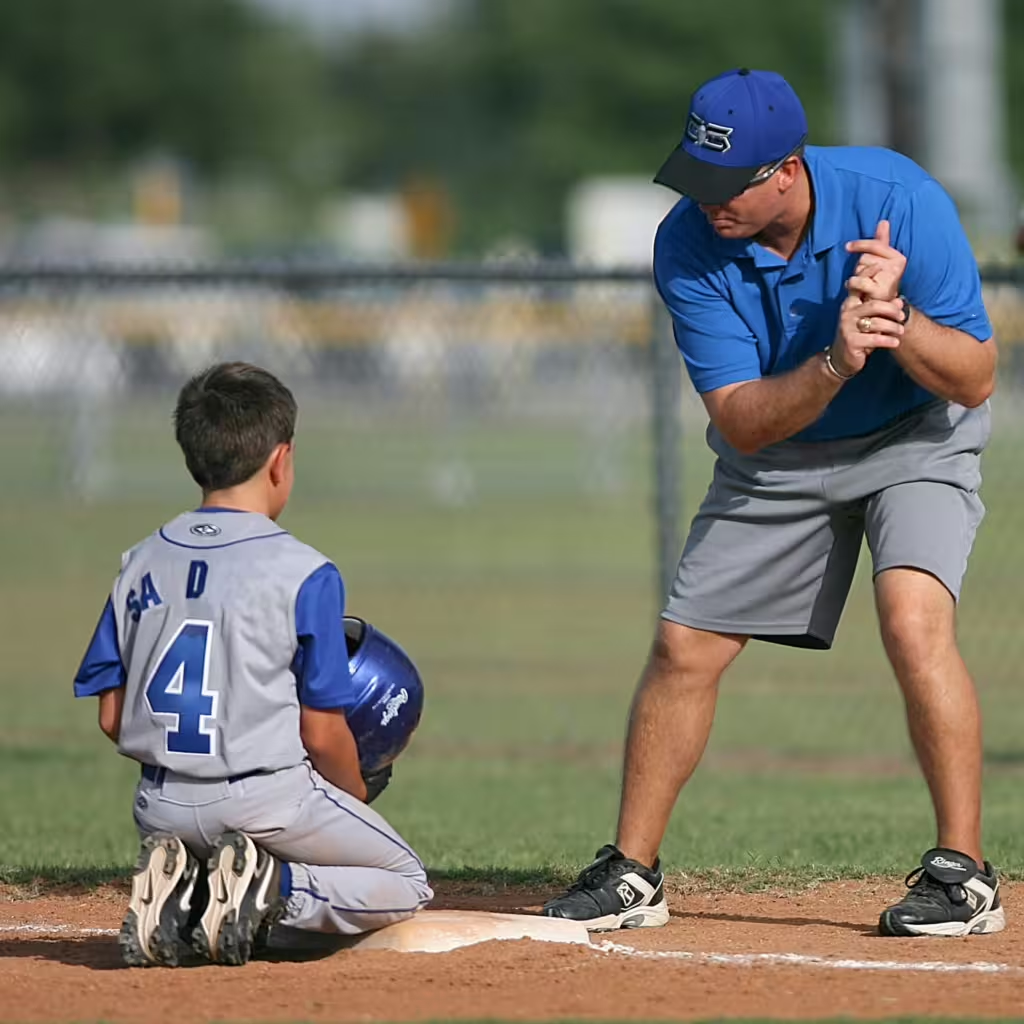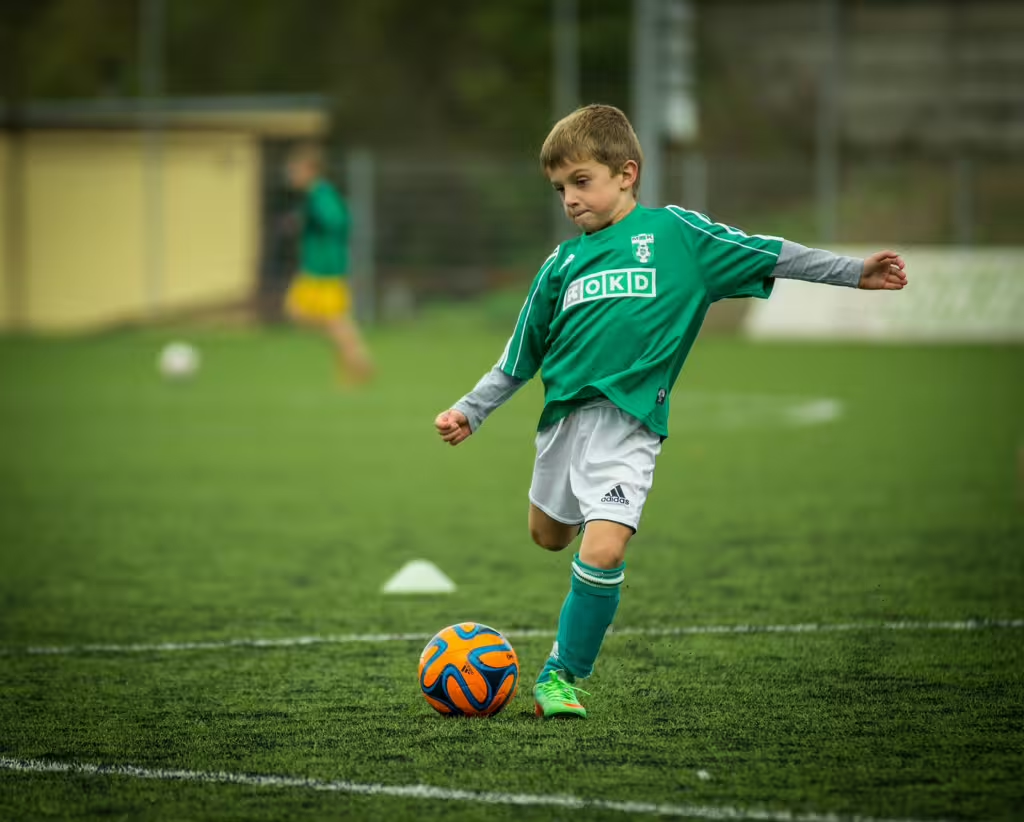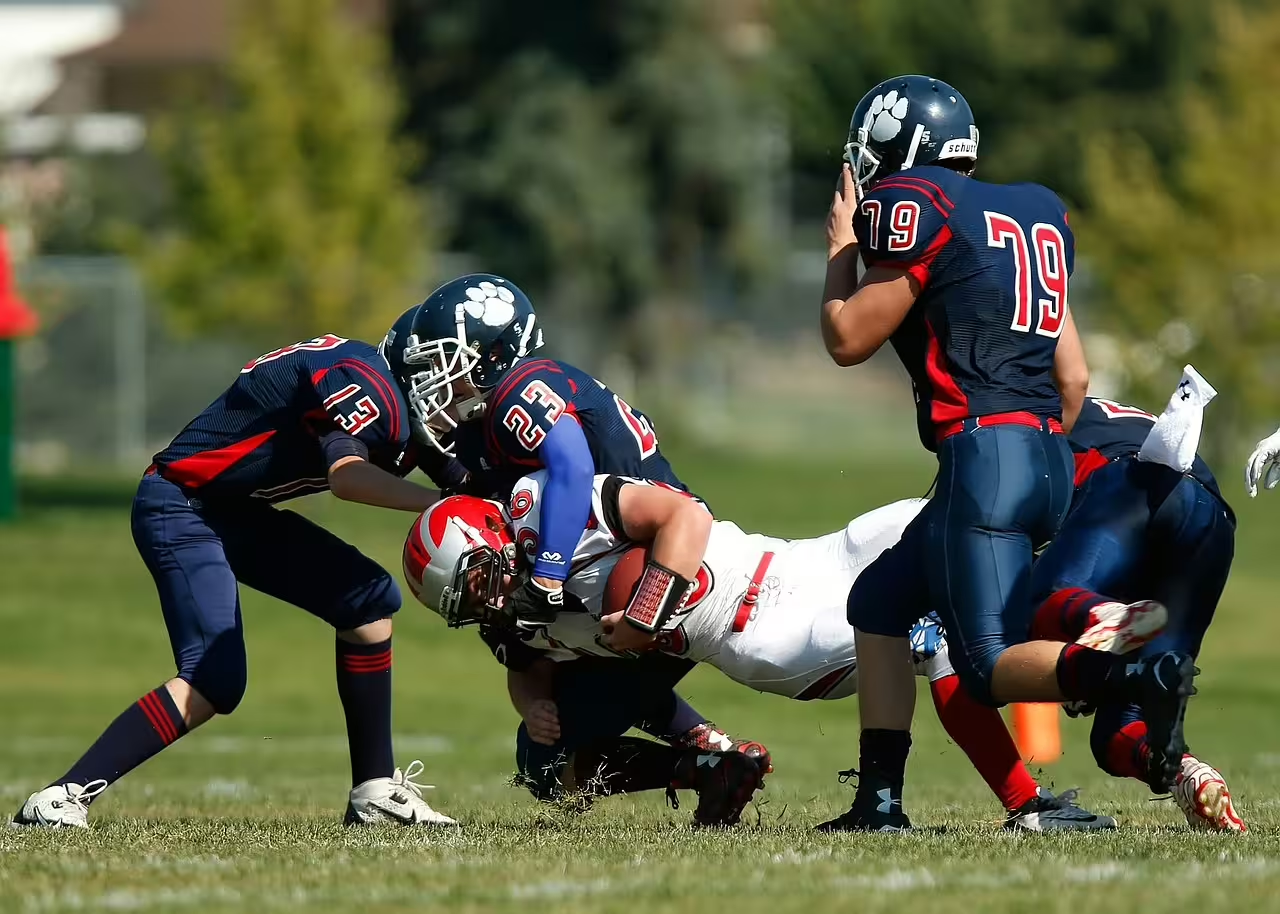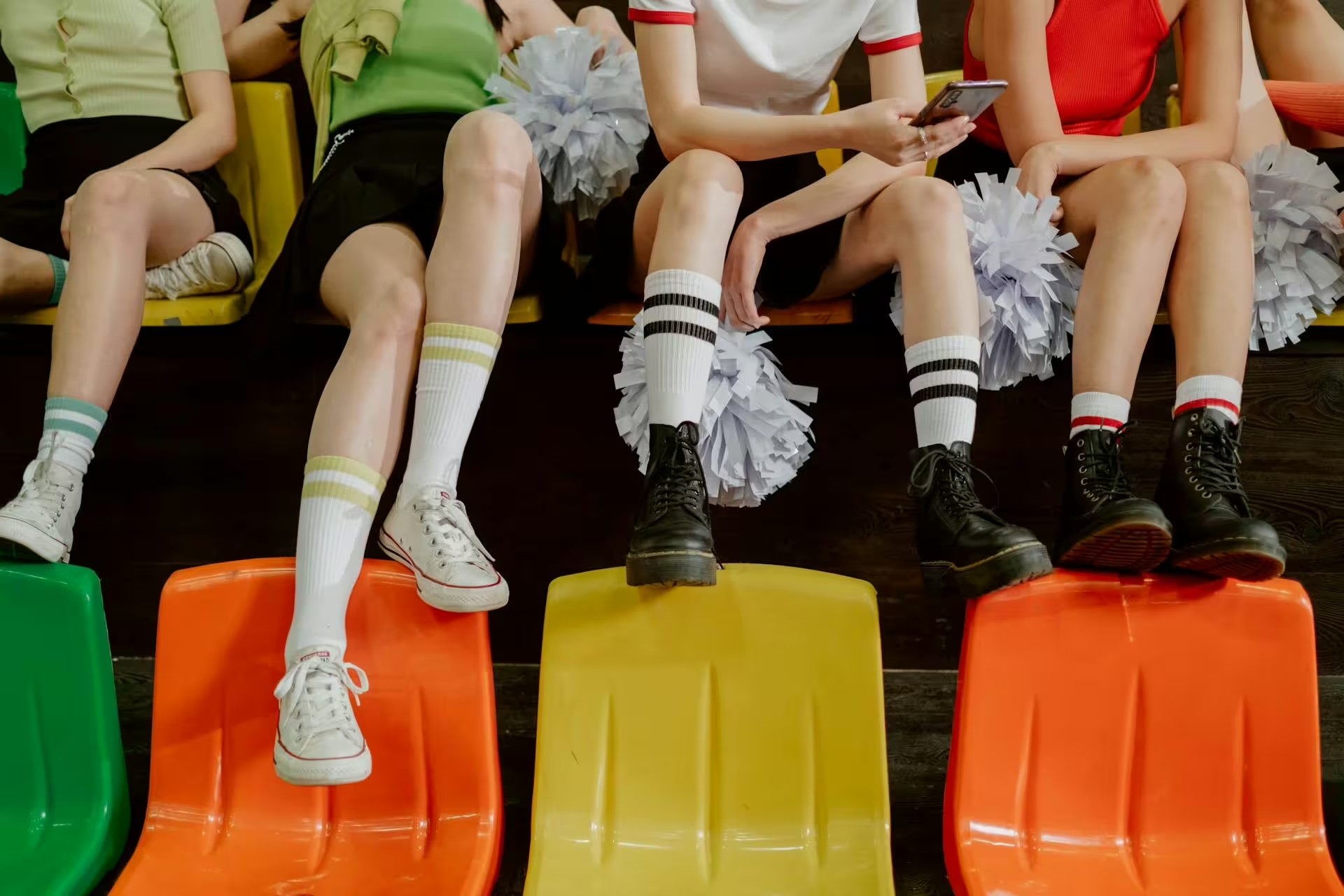When you’re a child, standing up at bat for the first time, or even the tenth time, the pressure can be somewhat overwhelming. Not only are you being watched by every member of your team, members who are relying on you to make that run successfully, but who might blame you for the potential loss if YOU do not make it. At the same time, your parents, coaches, relatives, friends, and the entire other team are all watching as well, waiting for you to fail or succeed with equal anticipation. The point is, this scenario is what happens nearly every time a young athlete gets up to do something during a sports gaming event.
While most athletes dreams of the big moments: hitting the game-winning shot, scoring the last goal, or making the perfect play under the spotlight, not all of them have the capacity to do so without getting stressed or depressed about it. These monumental moments come with a lot of pressure, and staying calm and focused can be tricky for adults, let alone kids. Whether you’re playing in front of a cheering crowd or just trying to do your best in practice, learning how to handle pressure is a key part of being an athlete.
In this guide, we will explore what pressure is and how it can affect children, specifically. We will explain how pressure affects a person’s mind and body, and, most importantly, how to help children stay cool when the stakes fell so high. With these tips in hand, we believe that your child will not only be ready to shine during the next big sports moment, they will also be more able to cope if that moment ends up going sideways.
What Does It Mean to Be Under Pressure?
Pressure in sports is pretty darn commonplace. Whether you are trying to make the winning run of the World Series or stick the landing at the county gymnastics finals, it’s not exactly a cake walk. The normal day to day pressures of simply playing a sport are one thing, but the worst usually happens when there’s a lot on the line. If your child is say, attempting to win a championship, trying to impress a coach, or simply doing their best to perform well for their team; there is going to be some amount of pressure. When a child begins to feel that pressure, they might even notice subtle changes in their body and mind, like:
- Sweaty palms
- A racing heartbeat
- Butterflies in your stomach
- Feeling nervous or distracted
Being cognizant of those feelings is difficult, however. So it often falls to us as parents to look for signs or inform our children of those warning signs. Above all, we should endeavor to explain to them that these feelings are completely natural! Pressure triggers our body’s “fight or flight” response, which prepares us to face challenges. While this can sometimes help us focus on things in a way that leads to success, too much pressure can simply overwhelm us or make us freeze up entirely.
Why Is It Important to Stay Cool Under Pressure?

Staying calm in high-pressure situations helps us to perform at our best, though it’s not always easy to achieve this. When an athlete is cool and focused, they are more able to think clearly, make good decisions, and stay in control of their actions.
The ability to handle pressure isn’t just helpful in sports—it’s a skill that will benefit your child in other areas of life as well. Kids who can deal with pressure will be likely to succeed in school, relationships, and in their future career. In fact, helping them to learn effective stress management techniques at a young age will prepare them for challenges both on and off the field.
Common Pressure Situations in Sports
Pressure can show up in many forms in youth sports, such as:
- Taking a penalty kick in soccer.
- Shooting free throws with seconds left on the clock.
- Hitting a critical serve in tennis.
- Pitching the final inning in baseball.
- Performing a gymnastics routine in a competition.
Even if your child is not competing, it’s possible that they might feel some pressure during tryouts, practices, or even when they are working on their own to improving a skill. No matter the situation, learning to handle pressure will help to make them a stronger athlete. So, the question then is; how can a kid learn to manage their own stress when pressure rears its ugly head.
How to Stay Cool Under Pressure: 10 Tips for Success
Prepare Like a Pro
One of the best ways to help kids stay calm under pressure is to teach them to be more prepared. When a kid practices their skills regularly, they will inevitably feel more confident in their abilities. Moreover, they will be able to see their own potential for what it really is. These preparation techniques often include the following:
- Practicing under game-like conditions.
- Learning your plays and strategies.
- Taking care of your body with sleep, nutrition, and hydration.
The more prepared your child is, the less intimidating those big moments will feel.
Focus on What You Can Control
During high-pressure moments, it’s easy for children to get caught up in worrying about things they can’t control, like the crowd, the scoreboard, or what their opponents are doing. Heck, it’s easy for adults to get caught up in the same worries during their own high-pressure situations. The trick in both cases, is to shift focus to what can be controlled, such as:
- Breathing.
- Technique.
- Attitude.
Having your child shift their concentration towards their own actions, will allow them to feel more in charge of the situation and themselves.
Practice Positive Self-Talk
The way that we speak to ourselves in our own heads can have a big impact on how we feel about any given situation. Most of the pressure that we feel in these types of situations is driven. by our own insecurities. In essence, we put that pressure upon ourselves. Therefore, the best way to alleviate this pressure is to replace negative thoughts like “I can’t do this” with positive ones like “I’ve got this” or “I’ve worked hard for this moment.” Positive self-talk is a great way to build confidence and relive pressure in kids.
Some athletes use mantras for this purpose—short, powerful phrases they repeat to stay focused. A good exercise to try with your child is to attempt to creating mantras that they can use, such as:
- “Calm and confident.”
- “One play at a time.”
- “I am ready.”
Breathe Deeply
When you’ve gotten nervous in the past, you might have noticed that your breathing become shallow and quick. We’re willing to bet that this made you feel even more anxious. Well, kids feel the same way when they get nervous, and they don’t always understand why. In these situations, it’s best to explain to them exactly what they might be feeling and have them focus on deep breathing to help calm the mind and body.
Here’s a simple breathing exercise you can practice with your kids:
- Breathe in deeply through your nose for four seconds.
- Hold your breath for four seconds.
- Slowly exhale through your mouth for four seconds.
- Repeat a few times until you feel more relaxed.

Visualize Success
When in doubt, visualize success! Visualization is a powerful tool that many athletes use to stay calm under pressure, and children have pretty effective imaginations! If your child is struggling with the pressure, have them take a step back to close their eyes and imagine themself succeeding. They could see themselves scoring a goal, making a great pass, or completing a perfect routine to the thunderous applause of their parents and peers! When it comes to the power of imagination, there is no limit.
Have your child focus on and picture the details:
- What does the field or court look like?
- How does your body feel as you perform?
- How does it feel to succeed?
How does this help? You may ask? Well, when we visualize success, our brains practices the movement, which can boost our confidence and performance.
Break It Down
Instead of focusing on the big picture, have your child break that moment up into smaller, more manageable steps. For example, if they are shooting a free throw in basketball, they should think about:
- Standing in position.
- Taking a deep breath.
- Aiming for the hoop.
By focusing on one step at a time, we can more effectively block out distractions and stay present in that moment.
Accept the Pressure
It’s normal for young athletes to feel nervous before a big moment. Instead of trying to fight those feelings, acknowledge them and have your child do the same. Then, tell them to use those feelings to their advantage. Have them tell themself, “This is exciting! I’m ready to take on this challenge.” By doing this exercise, you can help them to turn nervous energy into excitement, which will help them stay motivated and focused.
Trust Your Training
When the pressure is on, have your child remember all the hard work that they have put into practice up until this point. Remind them that their body knows what to do and they should trust it! Overthinking can cause hesitation, but focusing on instincts and letting training take over can be surprisingly effective.
Stay in the Moment
Pressure often comes from thinking too far ahead or worrying about the outcome. Instead of doing all that, have your child try to stay in the present moment. Help them to focus on what’s happening right now and what they need to do next.
A great way to stay present is to use their senses to assess the situation:
- Listen to the sounds of the game.
- Feel the ball in your hands or the ground under your feet.
- Watch the action around you.
Learn from Every Experience
Win or lose, every pressure-filled moment is a leaning opportunity. Each of these momentous events represents opportunity for young athletes to learn and grow. When the moment has passed, sit with them and reflect on what went well and what they might want to improve for next time. Remember, even professional athletes face challenges under pressure—it’s all part of their personal athletic journey.
Practice Makes Perfect: Training for Pressure
Handling pressure isn’t something we are born with—it’s a skill that we build through practice; and through trial and error. Many of us don’t even get to experience these lessons early on, but children who do so through sports are more adept at handling them when they are older. Here are some ways that you can help train your child’s mind and body to prepare for those big moments:
- Simulate Pressure: During practice, create situations that mimic game-day pressure. For example, practice shooting free throws with your teammates watching or play a scrimmage with a countdown clock.
- Work with a Coach or Mentor: Coaches can teach kids strategies for staying focused and help them build confidence in your abilities.
- Try Mindfulness Exercises: Mindfulness involves paying attention to the present moment without judgment. Practices like meditation or yoga can help children stay calm and focused under pressure.

Pressure in Team Sports vs. Individual Sports
Pressure can feel different depending on the type of sport your child plays.
- Team Sports: In team sports like soccer or basketball, kids might feel pressure to perform well for their teammates. Remind them that their team is there to support one another, and working together is the key to success.
- Individual Sports: In sports like tennis or gymnastics, all eyes might be on your child. This can feel overwhelming, but it’s also an opportunity for them to shine. Have your kid focus on their preparation and trust their individual skills.
Cultured Athlete Says…
Staying cool under pressure is one of the most important skills a young person can possess, but it isn’t something that they can control right away. The trick is helping them to prepare well, focus on what they can control, and practice strategies like deep breathing and visualization when things become overwhelming. If they do these things, then we’re sure that even the most nervous kid can handle even the most intense moments with confidence. Remember, it’s okay for them to feel nervous—pressure is a natural part of sports and life. The key is to help them embrace it, turn it around, and learn from every experience!
Discover more from CulturedAthlete
Subscribe to get the latest posts sent to your email.






